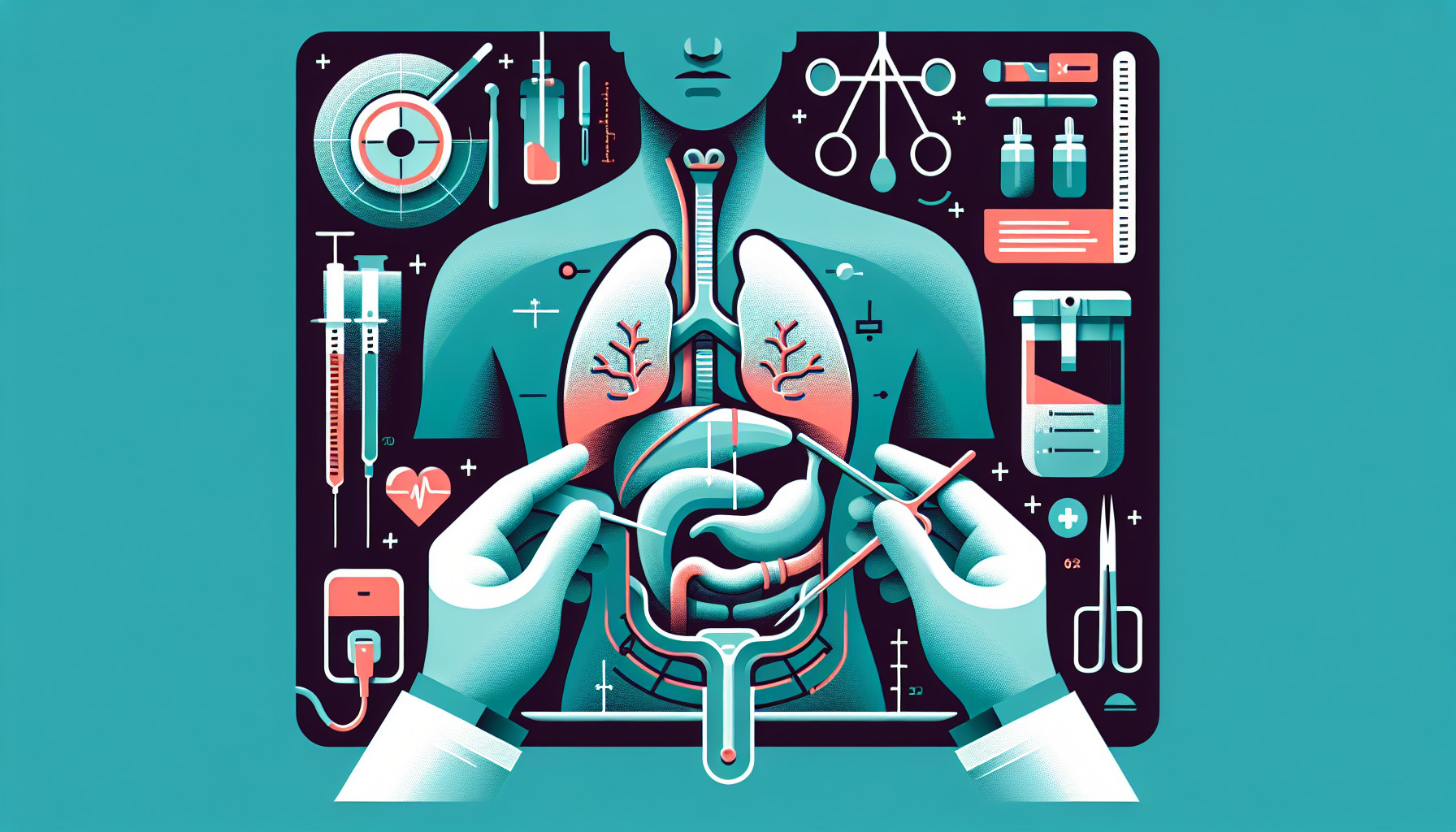Our Summary
The research paper discusses the potential of reversing diabetes through organ transplantation. However, this has to be weighed against the health risks associated with long-term use of drugs to suppress the immune system, which is necessary after a transplant. For patients with kidney failure, the best treatment is often a combined transplant of the kidney and pancreas, or a pancreas transplant after a kidney one. For patients who struggle with unstable blood sugar levels, the decision between a solid organ or islet (cells in the pancreas that produce insulin) transplant has to be balanced with the benefits and risks of continuing insulin treatment. The results of combined pancreas and kidney transplants are similar to other organ transplants, and there’s evidence that these transplants can improve patients’ quality of life and lifespan. There’s also some evidence that these transplants can slow down the progression of secondary health problems caused by diabetes in patients who have had successful transplants for several years.
FAQs
- What is the potential benefit of a pancreas transplant for a patient with diabetes?
- What are the considerations for a patient with renal failure when deciding on a pancreas transplant?
- How does a simultaneous transplant of the pancreas and kidney affect the quality of life and life expectancy of the patient?
Doctor’s Tip
One helpful tip a doctor might tell a patient about pancreas transplant is to carefully follow the post-transplant medication regimen, including taking immunosuppressant medications as prescribed. This is important to prevent rejection of the transplanted pancreas and maintain its function. It is also important for the patient to attend regular follow-up appointments with their healthcare team to monitor the health of the transplanted organ and overall well-being.
Suitable For
Patients who are typically recommended for pancreas transplant include those with:
- Type 1 diabetes with poor glycemic control despite optimal medical management
- Severe hypoglycemic unawareness or frequent hypoglycemic episodes
- End-stage renal disease requiring kidney transplant
- Glycemic instability leading to difficulty in managing diabetes with insulin therapy
- Complications of diabetes such as neuropathy, retinopathy, or nephropathy that are not responding to conventional treatment
It is important to note that pancreas transplantation is considered a last resort option for patients who have exhausted all other treatment options and are experiencing significant complications related to their diabetes. The decision to undergo a pancreas transplant should be made in consultation with a multidisciplinary team of healthcare providers, including endocrinologists, transplant surgeons, and nephrologists, to ensure that the potential benefits of the procedure outweigh the risks associated with long-term immunosuppression.
Timeline
Before pancreas transplant:
- Patient is diagnosed with type 1 diabetes and experiencing complications such as renal failure or glycaemic instability.
- Patient undergoes evaluation for transplant candidacy, including medical history, physical examination, and testing for compatibility.
- Patient is placed on the transplant waiting list and awaits a suitable donor organ.
- Patient may undergo dialysis or continue to manage diabetes with insulin therapy while waiting for transplant.
After pancreas transplant:
- Patient undergoes surgery to receive the pancreas transplant, often in combination with a kidney transplant.
- Patient is closely monitored for signs of rejection and complications post-transplant.
- Patient begins immunosuppressive therapy to prevent rejection of the transplanted organ.
- Patient may experience improved glycaemic control and quality of life post-transplant.
- Patient continues to be monitored long-term for complications and may require adjustments to medication and lifestyle changes to maintain the health of the transplanted organ.
What to Ask Your Doctor
What are the potential risks and complications associated with a pancreas transplant?
How long is the recovery process after a pancreas transplant?
What is the success rate of pancreas transplants in terms of reversing diabetes?
Will I need to take immunosuppressant medications for the rest of my life after a pancreas transplant?
How often will I need to have follow-up appointments and tests after the transplant?
How will a pancreas transplant affect my overall quality of life?
Are there any specific dietary or lifestyle changes I will need to make after a pancreas transplant?
What are the alternatives to a pancreas transplant, such as insulin therapy or islet transplantation?
How do the benefits of a pancreas transplant compare to the risks and complications associated with the surgery and long-term immunosuppression?
What is the long-term prognosis for someone who undergoes a pancreas transplant?
Reference
Authors: Dholakia S, Oskrochi Y, Easton G, Papalois V. Journal: J R Soc Med. 2016 Apr;109(4):141-6. doi: 10.1177/0141076816636369. PMID: 27059905
